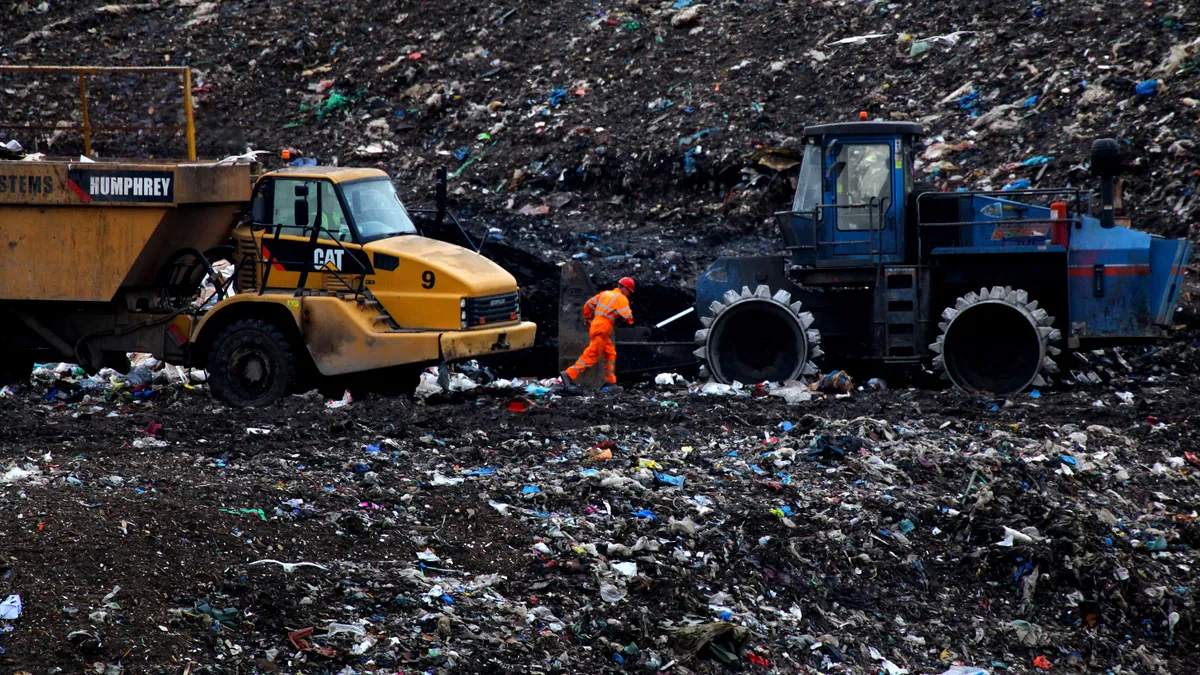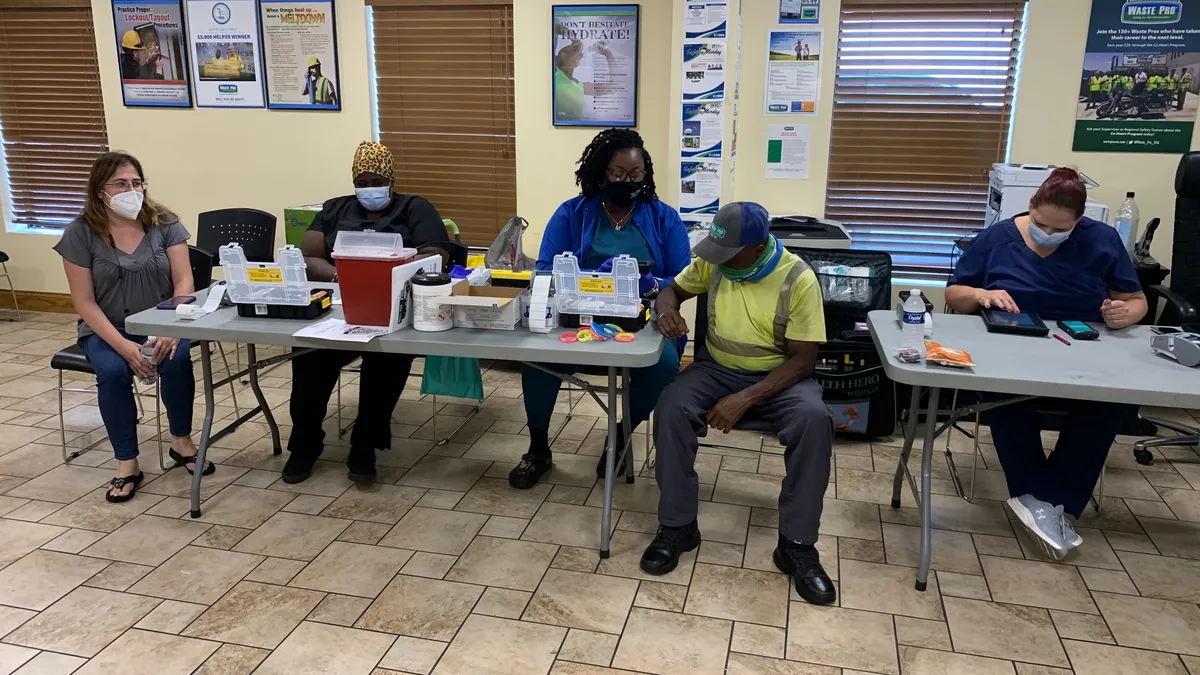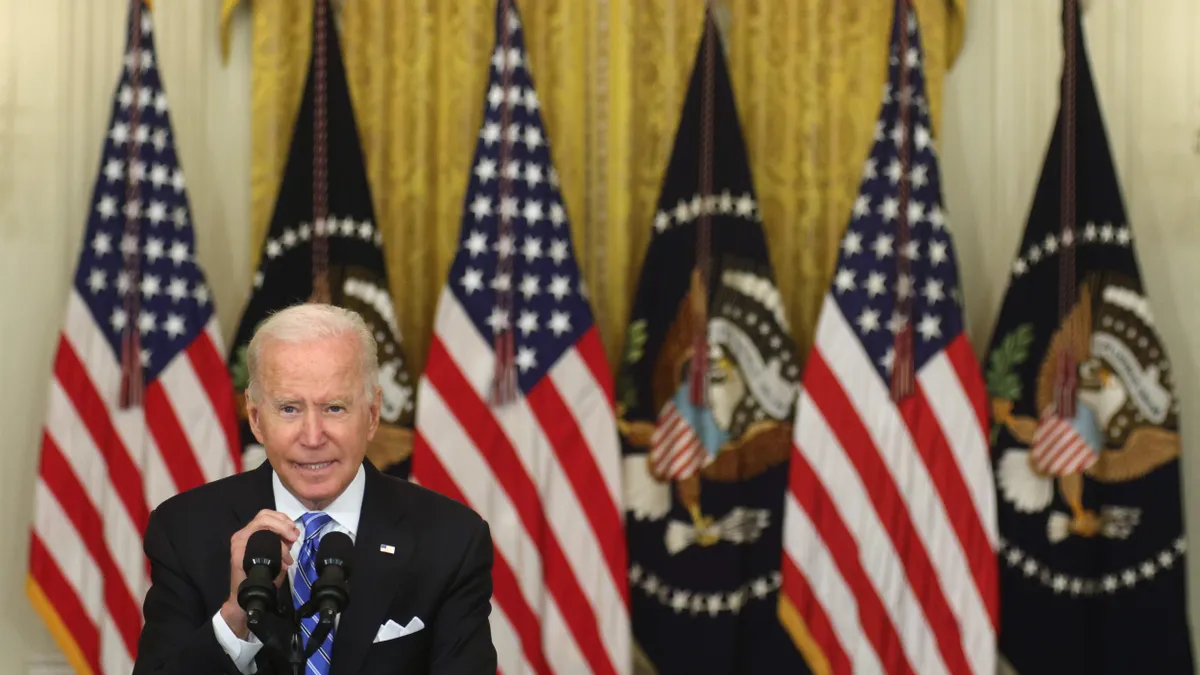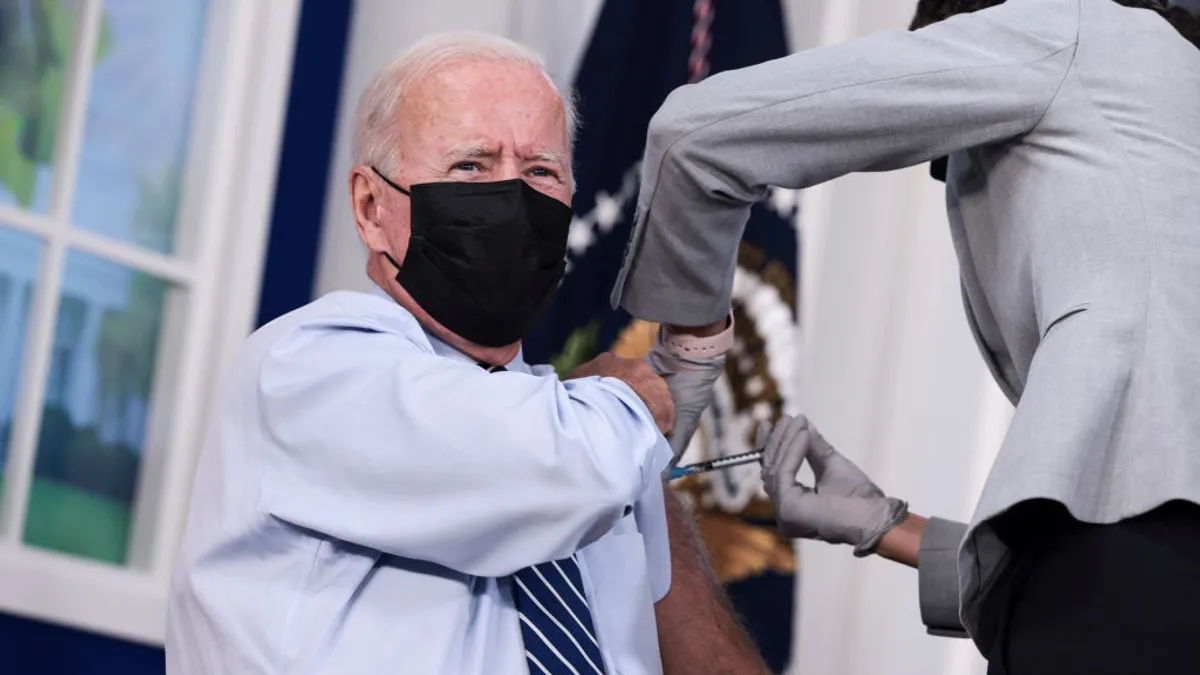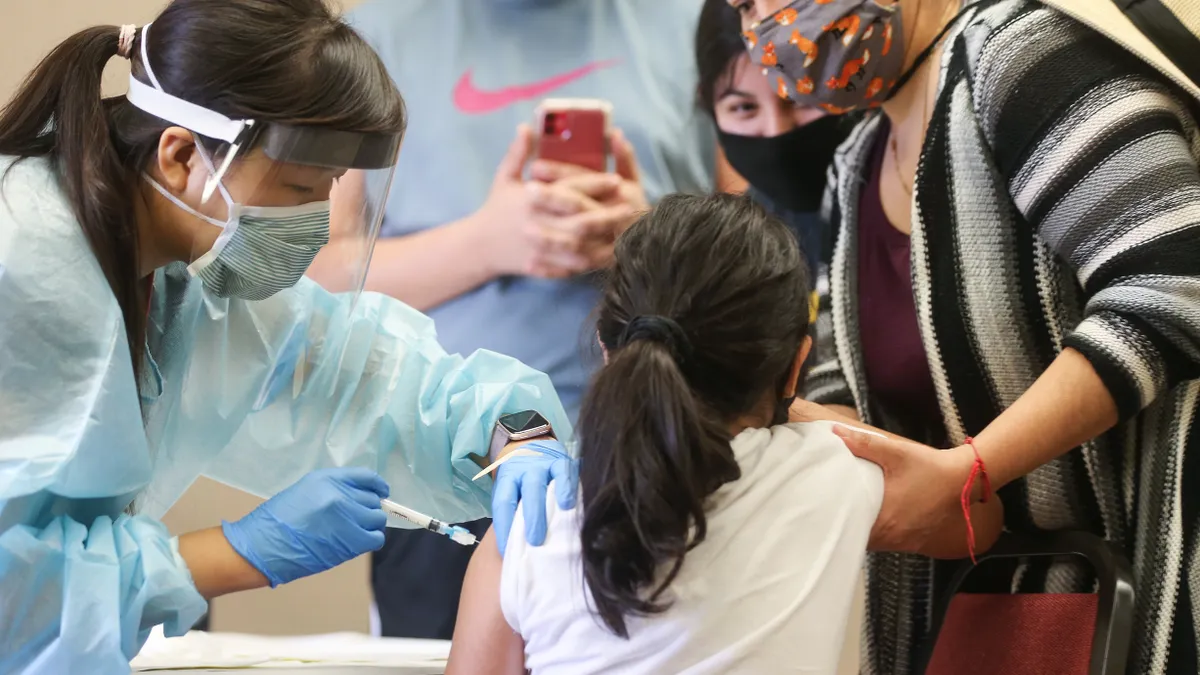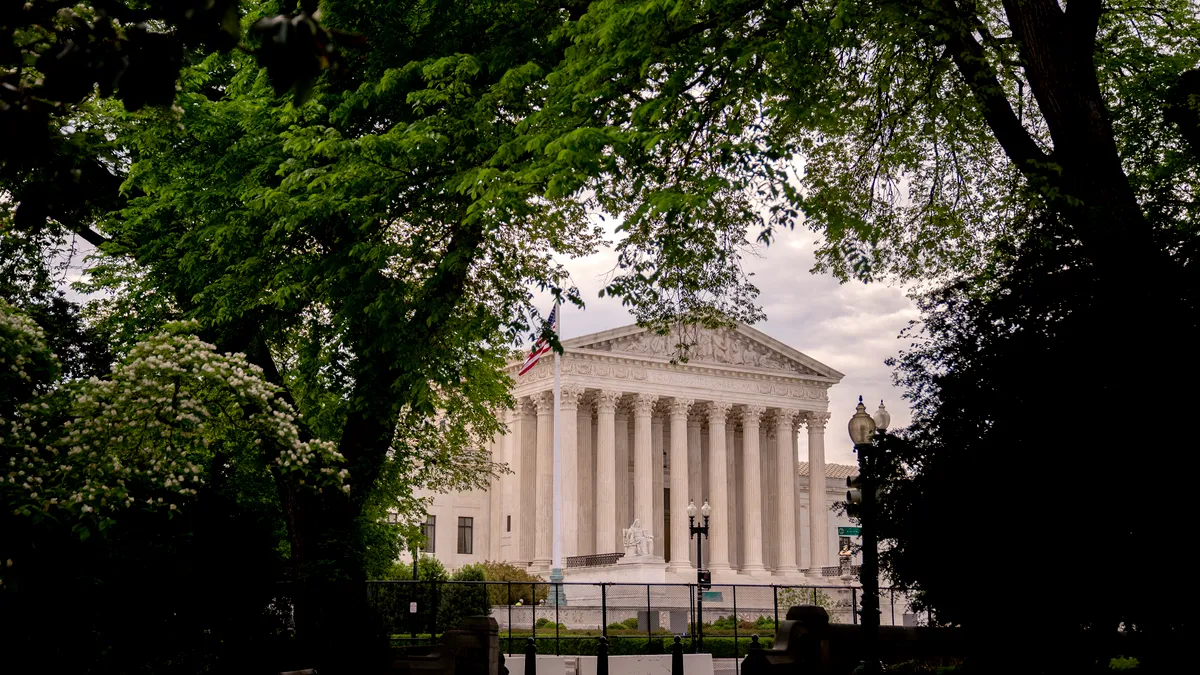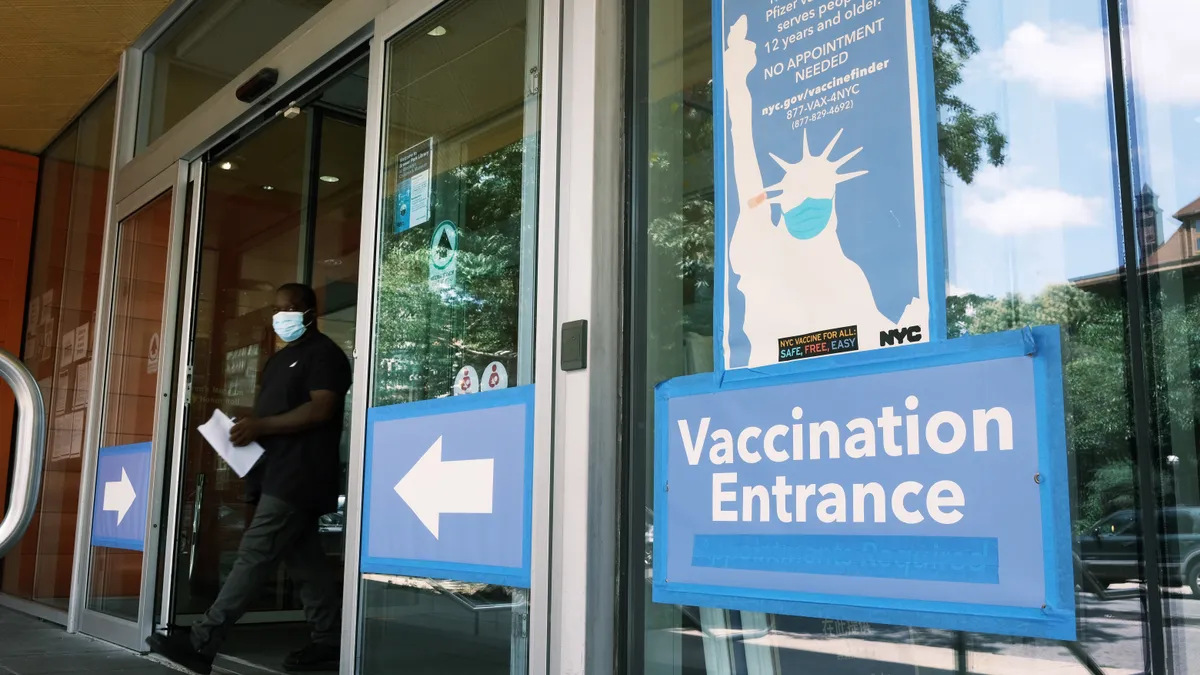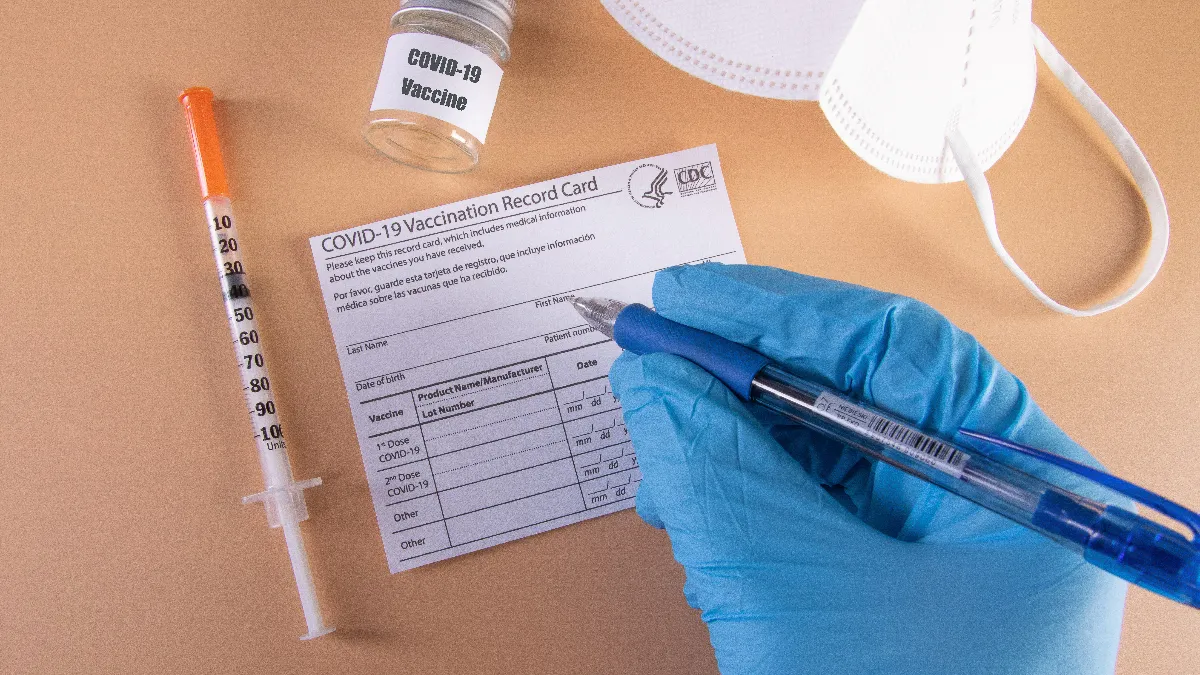Waste and recycling industry organizations are encouraging that employers with 100 or more workers prepare for federal regulators to require COVID-19 vaccinations or weekly testing parameters, even with implementation and enforcement on hold due to legal challenges.
OSHA at the beginning of this month issued its long-awaited, detailed emergency temporary standard (ETS) meant to protect U.S. workers from the coronavirus, with a compliance deadline of Jan. 4, 2022. Soon after, the 5th U.S. Circuit Court of Appeals stayed the ETS, and last week the 6th U.S. Circuit Court of Appeals was selected via lottery to hear the multidistrict challenge. The holdup did not come as a surprise; in September, about half of states’ attorneys general together said they would sue the federal government over the intended mandate. Additionally, the majority of OSHA’s previous instances of using ETS authority have been challenged.
While the requirements are on hold, industry representatives are working to better understand the ETS and its aspects that could influence its implementation for certain types of waste and recycling workers.
For instance, the ETS notes requirements do not apply to employees who work exclusively outdoors. Within the industry, work at landfills or in collection may have the most outdoor exposure, while work in MRFs or WTE facilities may involve greater indoor exposure.
"The ETS excludes them from the standard if they only spend a ‘de minimus’ amount of their time inside an office or other structure,” Solid Waste Association of North America CEO David Biderman wrote in an email in the week following the initial stay. “How OSHA defines ‘de minimus’ will likely determine whether these workers, as well as drivers of collection vehicles that do not use helpers, such as automated side-loaders and roll-off trucks, are subject to the standard. Some companies have advised SWANA they are exploring whether some of their drivers may be exempt from the ETS," he wrote.
Kirk Sander, vice president of safety and standards at the National Waste & Recycling Association, noted that "not every OSHA standard can address every individual situation," and that questions remain around how many minutes or hours, or what percentage of a work day, a worker must be outdoors versus indoors in order to be considered exempt from the requirements.
"Most of the companies I talked to are operating with [the idea] that probably this is going to go into effect, or some form of it's going to go into effect," and are "figuring out what category their employees fall into, how are they going to track all of this," Sander said.
The OSHA mandate would put private employers more on par with many large municipal counterparts that have had vaccination or testing requirements in place for weeks now. That enforcement has not been without difficulty, with reports emerging of dozens of New York City sanitation workers accused of faking vaccination records to satisfy requirements.
Overall, trade organizations are continuing to encourage vaccinations and advise that employers be equipped for some federal requirements to roll in at some point. And the American Medical Association and other leading healthcare voices last week urged businesses that fall under the OSHA ETS, in spite of the roadblocks to implementation, to "not delay in implementing this standard."
"We're just in a weird place because this stay has been put on it by the court. We're all kind of watching it, but it's just a good idea to be prepared and already have that plan ready, but beef it up based on this new emergency temporary standard," said Tony Smith, vice president of safety at the Institute of Scrap Recycling Industries.
Given labor constraints for waste employers, some have suggested OSHA's move is not popular. "This is not a time when the government needs to exert additional pressures in an already constrained environment," said Waste Connections CEO Worthing Jackman during the company's most recent earnings call at the end of October, a week before the ETS came out.
Still, the company said it would be watching for further details and numerous others also suggested they are following the advice to prepare accordingly.
Covanta Chief Human Resource Officer Ginny Angilello said in an emailed statement the company is “actively implementing the necessary policies to protect our employees against COVID-19,” which includes “development of proper testing infrastructure and vaccine tracking.”
Meanwhile, Waste Management Director of External Affairs Janette Micelli said in an emailed statement that as the company awaits “further clarity from these court challenges, WM is taking all necessary steps to ensure compliance with the OSHA ETS, including the required weekly testing of unvaccinated, by the Jan. 4th effective date."
Likewise, Rumpke Waste & Recycling Director of Corporate Communications Amanda Pratt stated the company's "internal coronavirus response team is conducting research to best prepare to implement any necessary changes to ensure compliance."
A Republic Services spokesperson said last week that company was "unable to respond at this time."
According to Waste Pro Vice President of Human Resources Shannon Early, the company is continuing to work toward gathering employee vaccination status information, with near-term emphasis on federal contractors, for whom a vaccine mandate remains intact. At Waste Pro, Early estimated the number of employees that fall into that category is a couple hundred (out of a companywide workforce nearing 4,000).
But on the whole, Early summed up many other industry players' thoughts. "Unfortunately, it's a wait-and-see game."



